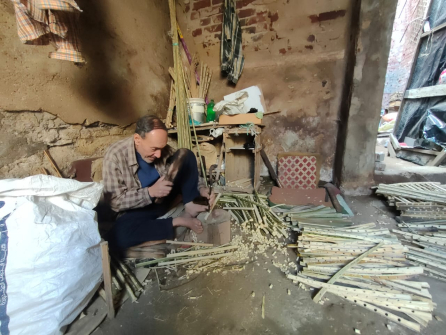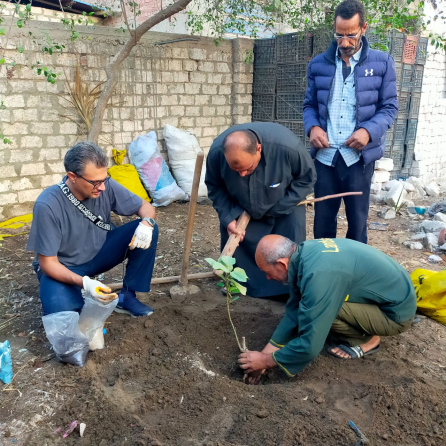About the Place
Located in the northeastern Egypt, Rashid (Rosetta), or Markaz Rashid, is an enchanting city at the mouth of the Nile, where it seamlessly merges with the Mediterranean Sea.
The city has a unique cluster of traditional knowledge and practices dating back to prehistoric times, where livelihoods flourished along the fertile soil of the River Nile, with many families relying on fishing, agriculture, and crafts that are directly tied to their environment and its materials. Burj Rashid embodies a long history of relationships between the land, people, river, sea, and climate change, serving as a model for residents' adaptation to their ever-changing surroundings.
The city is renowned for its historical significance linked to the discovery of the Rosetta Stone, which played a vital role in deciphering the hieroglyphs and understanding the evolution of the Egyptian civilization. However, today, Rosetta faces rising sea levels and increased salinity in river water, affecting the livelihoods of its residents.
Climate Change as a Risk Driver
The local community in Rosetta faces threats from climate change, including rising sea levels, irregular rainfall, and desertification. Projected temperature increases and decreased precipitation could worsen these impacts, leading to coastal erosion, crop failure, and loss of ecosystems.
Traditional Knowledge
The project documented local weather forecasting and natural resource management techniques, essential for community resilience. The sycamore tree, significant in ancient Egyptian culture, was identified as crucial for combating desertification and soil erosion. However, the tree is at risk of extinction due to misinterpreted heritage stories.
Furthermore, the ancient Egyptians accurately forecasted the Nile flood season using the rising of the Sirius star, which marked the season of inundation, followed by the agricultural and harvest seasons. Also known as the Coptic calendar, this method is still used today in Rashid to base the timing of planting and harvesting crops such as wheat, corn, flax, and barley.
Culture-Based Climate Action
The project engaged local stakeholders to integrate traditional knowledge into climate adaptation and disaster management policies. Trust-based relationships were established with the Rashid community through discussions and meetings, fostering collaboration with fishermen, youth, and the "Hayat Karima" initiative.
Sycamore Tree Planting
Planting 45 sycamore trees in Burj Rashid reduced land aridity and salinization while revitalizing cultural gathering spaces. This effort also engaged the youth, promoting intergenerational knowledge exchange and cultural pride.
Vulnerability Assessment and Stakeholder Collaboration
A participatory assessment involved 80 fishermen and farmers, aligning community needs with government plans. This led to Burj Rashid's inclusion in the "Hayat Karima" action plan for flood risk management and the promotion of eco-friendly practices.
Early Warning System
A mobile-based early warning system is being developed using ancient Coptic symbols to help Rosetta's fishermen and farmers prepare for extreme weather, addressing the challenges posed by rising sea temperatures and unpredictable storms.


